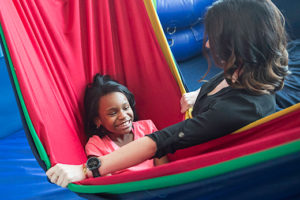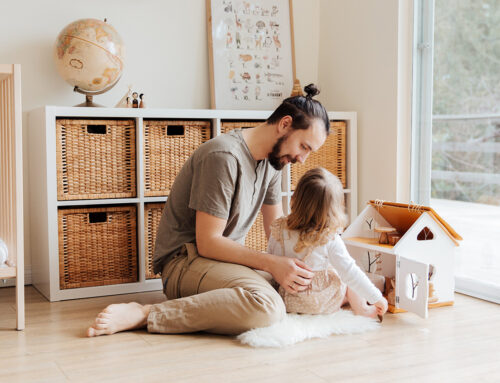What’s Telehealth and How Does It Work in Applied Behavior Analysis?

With advances in technology, therapists are able to provide therapy to clients without being in the same room as them. Telehealth is a form of videoconferencing where an RBT or a BCBA is at a remote location, but still provides the same therapy to their clients. These sessions can be done if the family lives in rural areas, for health reasons where families are not able to travel, if a parent needs extra assistance and busy schedules mean it’s hard to find time to meet in person, or many other situations.
In the field of ABA, telehealth has been researched and this suggests that it can be used to support parental learning and improve behaviors for the child (Vismara, McCormick, Young, Nadhan, and Monlux, 2013). Through telehealth, parents can learn the terms and procedures that are used with their children while they are face to face with an RBT. Learning these concepts can then be modeled between the parent and RBT/BCBA in order for parents to get a hands-on idea on how to deliver treatment. When comfortable enough, the parents can try running programs with their child and the RBT/BCBA can give feedback and answer any questions that come up during this time. Additionally, if there are challenging behaviors, the techniques that are used and the plan that should be followed can be gone over with the parents. The parents can then implement these procedures while being given reassurance that they are doing them correctly.
In respect to RBTs providing services and a BCBA videoing in, sessions can be watched in real time and feedback can be given; changes can also be made if they are needed. BCBAs and RBTs can be in constant communication and questions can be answered immediately and different techniques and methods can be trialed to see what works best for the RBT and the client.
Being that telehealth is something different and new, it may be confusing or one may feel apprehensive about it. Researchers have found that telehealth services have not disrupted treatment efficacy and is just as effective as face-to-face in-person treatment (Pollard, Karimi, Ficcaglia, 2017). Even though RBTs or BCBAs may be providing services through a screen, they are still keeping the client’s best interest in mind and will be running the same programs they would if they were in the office or giving helpful information to parents in order for the parents to better understand how to handle difficult situations if needed.
Pollard, J. S., Karimi, K. A., & Ficcaglia, M. B. (2017). Ethical considerations in the design and implementation of a telehealth service delivery model. Behavior Analysis: Research and Practice, 17(4), 298-311. http://dx.doi.org/10.1037/bar0000053
Vismara, L. A., McCormick, C., Young, G. S., Nadhan, A., & Monlux, K. (2013). Approach to parent training in autism. Journal of Autism and Developmental Disorders, 43, 2953-2969. https://doi.org/10.1007/s10803-013-1841-8

Eyas Landing is a therapy clinic with a mission to provide evidence-based and family-centered therapy services for children, adolescents, and their families. The primary goal is to deliver relationship-based interventions within the most natural environments and to empower families to reach their full potential. To achieve this goal, our highly educated, compassionate staff dedicates time and expertise to create experiences that maximize therapeutic outcomes. The strength, determination, and perseverance of our clients are evident as they succeed in therapy, and ultimately in their daily lives.
Eyas Landing offers a wide range of comprehensive services including Speech Therapy, Occupational Therapy, Physical Therapy, ABA Therapy, Social Work, Family Therapy, and Neuropsych testing. Services are provided throughout the Chicagoland area via Telehealth, In-Home, and in our state of the art clinic.
Want to learn more or you have a specific question? Feel free to connect with us here!



